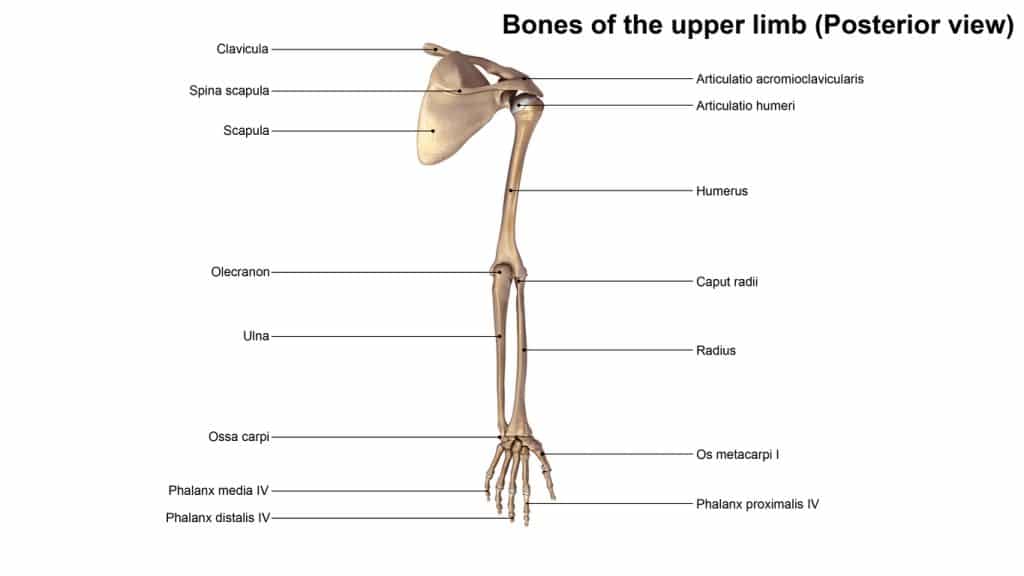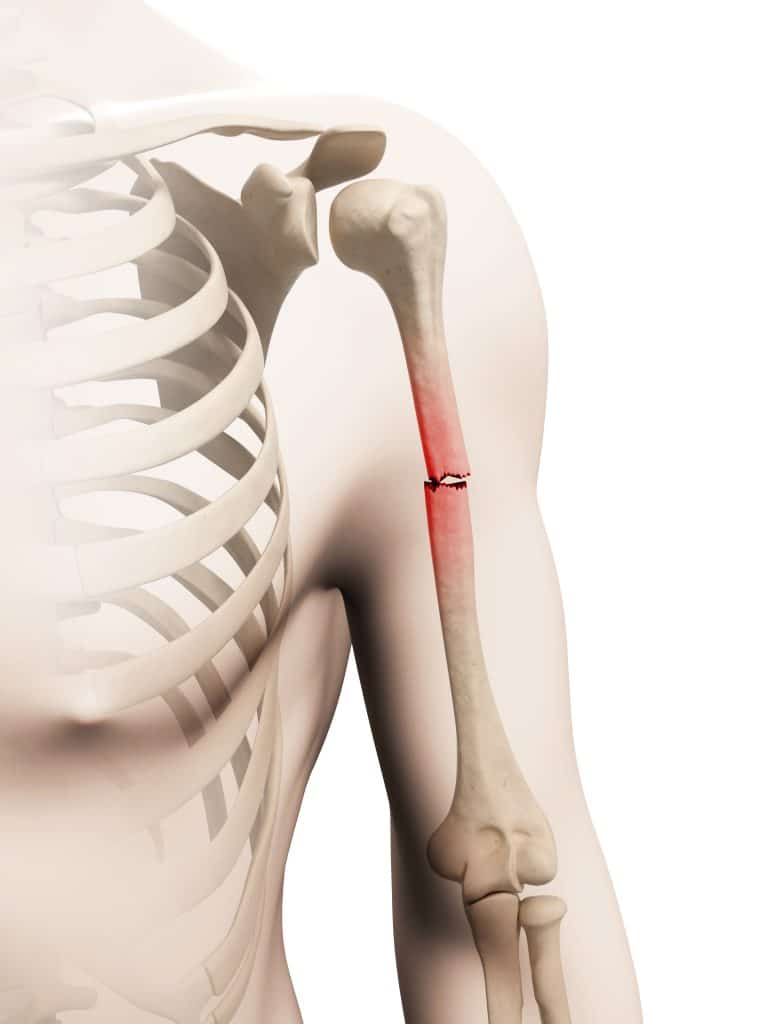How Long Does It Take a Humerus Fracture To Heal?
The humerus is the upper arm’s only bone. It connects the shoulder to the elbow and is strong enough that breaking it typically requires significant force. A humeral fracture can take several weeks to a few months to heal and sometimes requires surgery.
Symptoms of a Broken Humerus
The humerus connects the shoulder to the forearm. While anyone can break their humerus, doing so typically requires a significant impact to the area, such as a car accident or substantial fall. According to Cleveland Clinic, humerus breaks account for up to 10 percent of broken bones.
The most common symptoms of a humeral fracture include:

- Tenderness and pain
- Swelling
- Bruising
- An obvious deformity or bump
- Inability to use or move the arm or shoulder like normal
- Tingling or weakness in the hand or wrist
Because humerus fractures typically occur due to significant force or impact, there’s a chance surrounding tissues will be damaged as well. Concurrent injuries can affect surrounding muscles, nerves, and blood supply. Humeral fractures with additional issues are more serious and require immediate treatment. Go to the emergency room if you’re in significant pain, can’t move your arm or shoulder, the area looks deformed, swollen, or bruised, or if you can see your bone through the skin.
Diagnosis of a Broken Humerus

Your orthopedic specialist will perform a physical exam and then take an X-ray. They may also want an MRI or CT scan to evaluate the area for additional injuries or provide more details. If you think you may have broken your humerus or any other bone, see an emergency provider and orthopedic specialist for proper diagnosis and treatment.
How serious is a humerus fracture?
The type of fracture you have will be determined by the break’s location, pattern, and whether it protrudes through the skin. Your specialist will treat less serious breaks with a splint, cast, sling, or brace.
Breaks in which an end of the broken bone comes through the skin (open fractures) are more serious and generally require surgery. They take longer to heal than their counterparts (closed fractures, where all bone parts remain inside the body) and carry an increased risk of infection.
The terms displaced and non-displaced also describe the severity of a broken humerus. Displaced fractures are those where the pieces of broken bone have shifted enough to create a gap or misalignment. A treatment called a reduction is used to realign broken bones that have moved out of their normal position. Your orthopedic specialist can sometimes do this non-surgically, as in a closed reduction. Other times the bones, they will use surgical methods (an open reduction) to realign the bones.
Non-displaced fractures are those where the break did not cause the bones to shift, so their natural anatomical alignment remains. These fractures are generally responsive to non-surgical treatments like splinting or casting.
What is the treatment for a humeral fracture?
If you have a non-displaced humeral fracture that did not significantly injure surrounding tissues, you may be able to heal by wearing a sling and possibly a splint or cast. Sometimes you will start in a splint for 3 to 5 weeks, then move to a hard plaster cast for an additional 6 to 8 weeks. Other times a combination of a splint, sling, and brace will be enough to keep the humerus stable but still allow surrounding muscles to maintain their flexibility. Physical therapy will also be an important part of healing and improving strength while alleviating residual stiffness.
If your fracture requires surgery, you will work with your orthopedic specialist to determine the right procedure for your injury and goals. In an internal fixation procedure, your orthopedic surgeon uses rods, plates, screws, pins, and/or wire to hold the bones in place while they heal. Sometimes these connecting pieces are left in place permanently; other times, they will be removed with additional surgery. As with less serious humeral fractures, your orthopedic specialist will instruct you on physical therapy exercises as part of the healing process.
A humeral fracture that also includes a fractured clavicle, shoulder, or elbow may require that joint to be replaced. This process is called arthroplasty. Your orthopedic surgeon will replace the damaged joint with an artificial version made of metal, ceramic, or plastic.
In some cases, severe humeral fractures may require bone grafting to aid healing. In this process, your surgeon adds new bone to the existing bone. This bone can come from another part of your body, a donor, or be artificially created.

Preventing a Humeral Fracture
Accident prevention is key to avoiding a humeral fracture. Wear your seatbelt, use protective equipment while playing sports, and keep your home and workspace free of tripping hazards.
Those with weaker bones due to conditions like osteoporosis are likelier to suffer a broken humerus, even without accident or injury. Many people with osteoporosis are unaware of it. Talk to your orthopedic specialist about preventing and testing for this disease. Osteoporosis is generally more common in women and people over age 50. Keep your body strong and stable with weight-bearing exercises, balance exercises, and a healthy diet. Talk to your orthopedic doctor, sports medicine doctor, or family practitioner about a bone density test and healthy habits.
If you’d like to talk to an orthopedic specialist about an arm injury or how to keep your bones healthy, please contact us or comment below.
1 Comment
Permalink
I sustained a nondisplaced humerus fracture after being hit by a car 4 years ago. As of approximately 6 weeks ago, I am now experiencing moderate (6 to 8) scapular pain in the form of a dull, constant ache, as well as neck stiffness. Is there a correlation between injuries like this and delayed shoulder pain? That is, could this shoulder pain be a product of concurrent tissue damage from the accident?